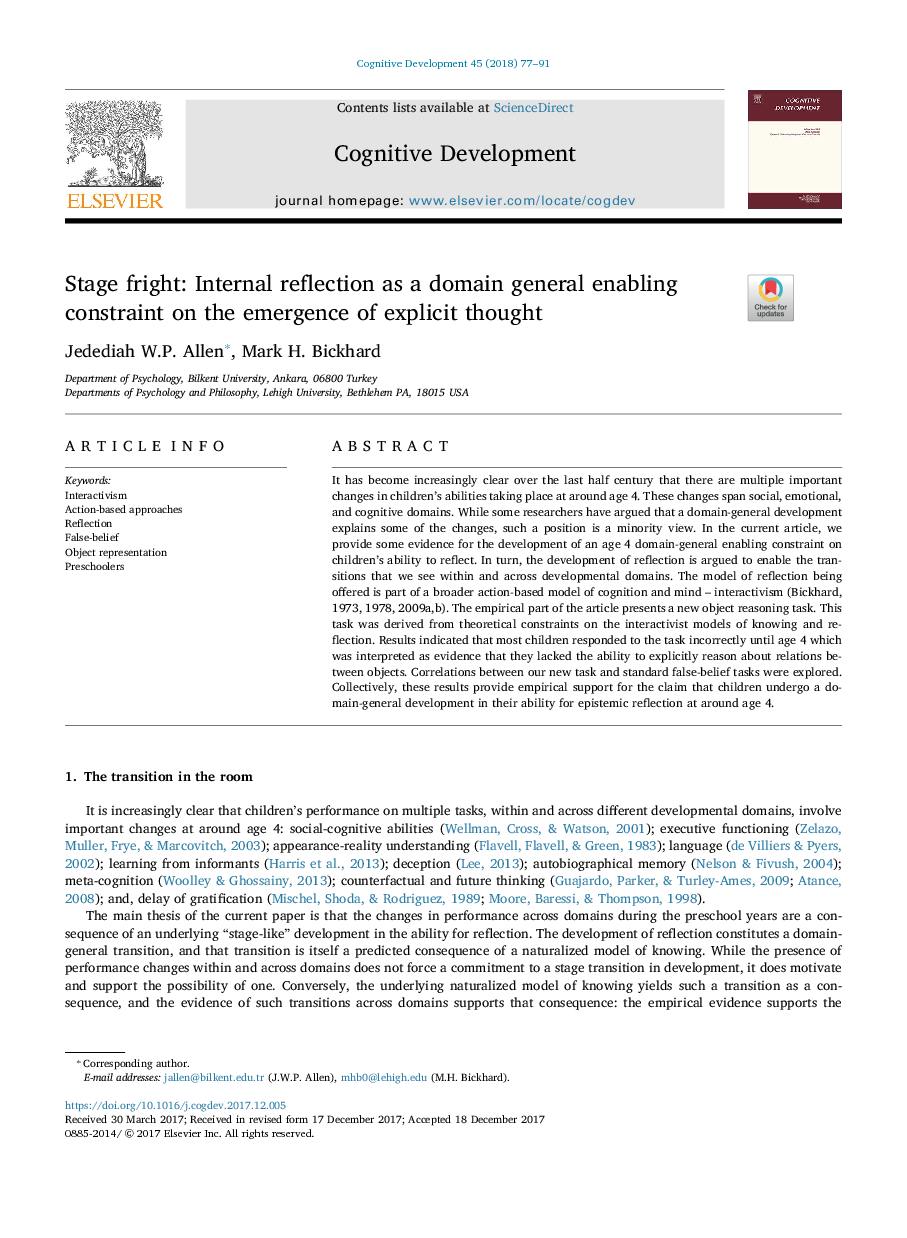ترجمه فارسی عنوان مقاله
ترس مرحله: انعکاس درونی به عنوان یک کل دامنه امکان محدود کردن ظهور تفکر صریح
عنوان انگلیسی
Stage fright: Internal reflection as a domain general enabling constraint on the emergence of explicit thought
| کد مقاله | سال انتشار | تعداد صفحات مقاله انگلیسی |
|---|---|---|
| 134010 | 2018 | 15 صفحه PDF |
منبع

Publisher : Elsevier - Science Direct (الزویر - ساینس دایرکت)
Journal : Cognitive Development, Volume 45, JanuaryâMarch 2018, Pages 77-91
ترجمه کلمات کلیدی
تعامل گرایی، رویکردهای مبتنی بر عمل، بازتاب، باور اشتباه، نمایندگی شی، کودک پیش دبستانی،
کلمات کلیدی انگلیسی
Interactivism; Action-based approaches; Reflection; False-belief; Object representation; Preschoolers;

